Kindergarten Classroom Daily Schedule
Good morning. I wanted to invite you into a day in the life of… me, a kindergarten teacher… in my classroom.
This is also the skeleton of our daily routine and schedule since many of you have asked for it.
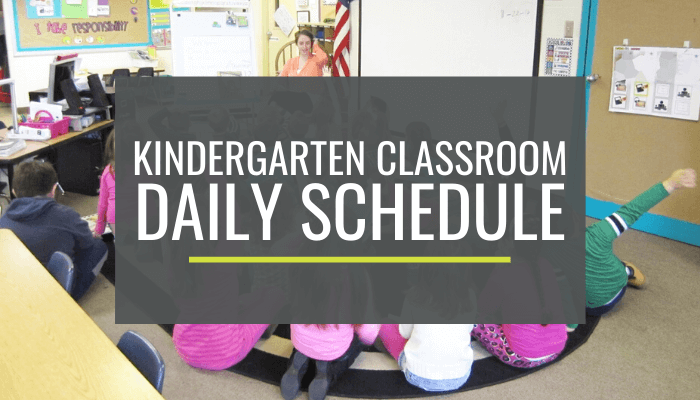
Please note that our schedule changes every year and I’m not afraid to even change it up mid-year just to see if I can improve on things.
But regardless of any changes, the bulk of what makes up our daily routine doesn’t change. It’s usually just the order of what we do when or the amount of time I can allot to certain things that does change.
Now, let’s start with the morning before students arrive.
Morning prep time
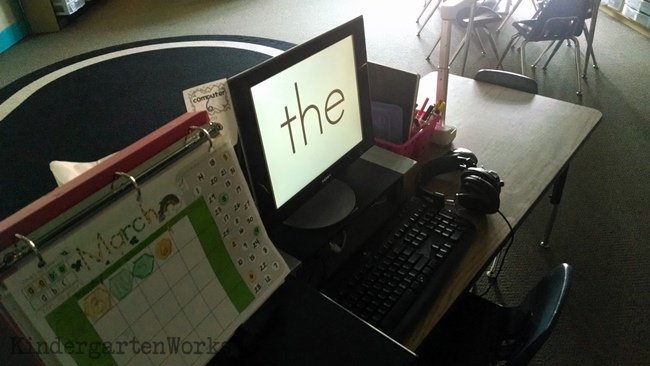
I turn on a computer or two in my classroom with my arms full of stuff and I keep the lights off while I begin my day. The daylight often gives me enough to work with and I enjoy the quiet stillness of the slightly-darkened room.
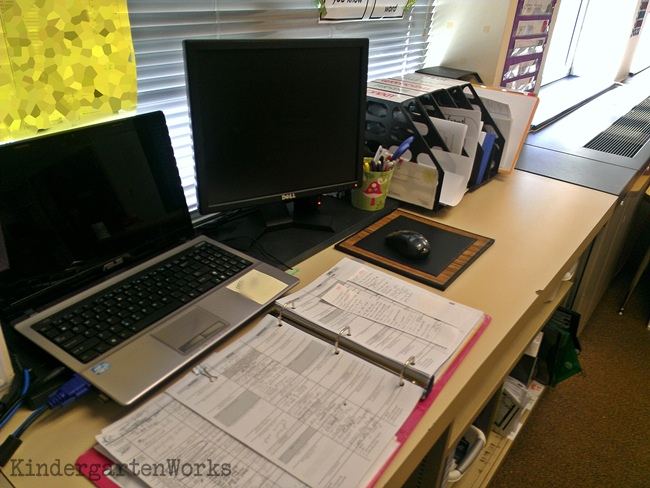
I head over to my teacher space and either work on my lesson plans in my lesson plan binder, answer emails or organize materials for the day as needed.
I usually have a to-do list somewhere that helps me keep track of what was leftover from yesterday or I work ahead.
Or… I wheel around and use my large teacher table to plan out more of my guided reading plans or guided math plans.
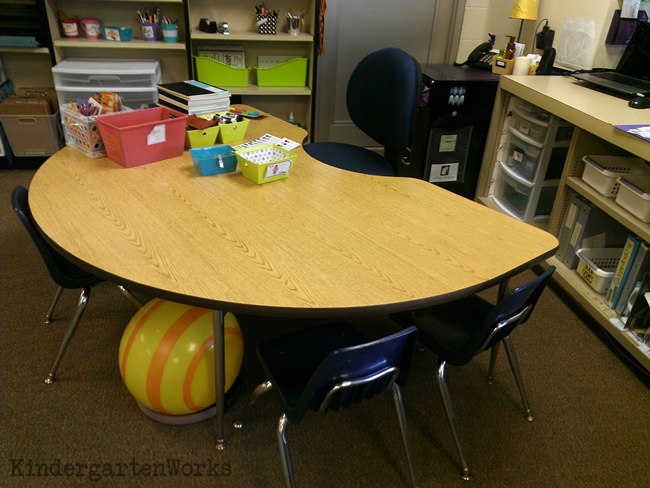
I don’t plan super far ahead in general for guided math and guided reading since I use my notes and documentation from previous lessons to plan the next couple of lessons.
It feels like no time at all before I pick up my kinders, the lights come on and we are at full steam. Don’t you love the enthusiasm they start every day with?
Students arrive
We follow our morning routine for putting items away and get started working.
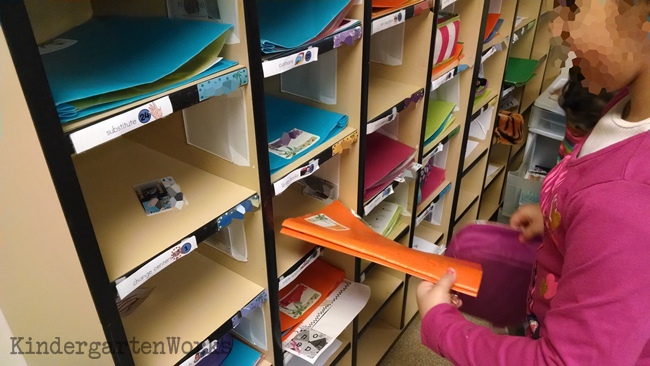
Students complete the calendar page from our calendar binders independently before coming together as a group. (We didn’t do this until most students were successful at doing this independently.)
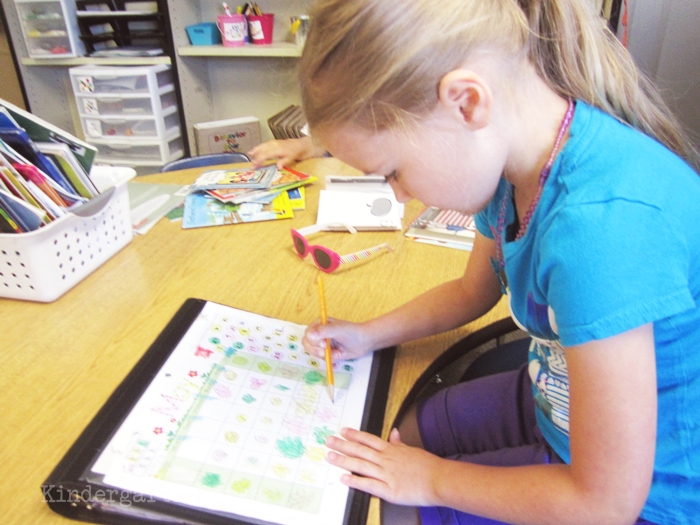
Then they work on one of these three activities that I have selected for the day. I like to rotate:
- buddy reading
- read to self
- author writing
During this time more daily things happen…
- Announcements
- Lunch count
- Morning classroom jobs
Moving on.
Whole group calendar binder time
I use my computer to signal students to clean up with a good morning song and they all grab their calendar math binders and pencil boxes (which they left out from earlier on a table or shelf) and meet as a group on the floor.
We review the calendar page, date and then hit various Common Core math standards.
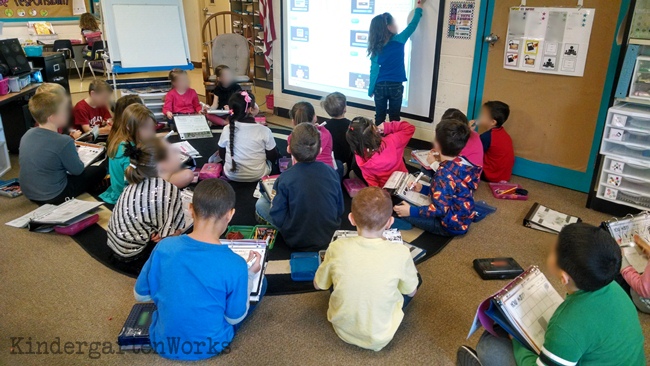
Right now we are getting in a variety of skill practice like:
- finding the missing addend to make 10
- exploring rekenreks to 20
- solving for an unknown
- solving two-step story problems
- subitizing
- counting {right now by tens…. starting at numbers other than 10… like 4 or 7}.
But we don’t hit all of those skills in one day. I select 1-3 skill pages to work on each day.
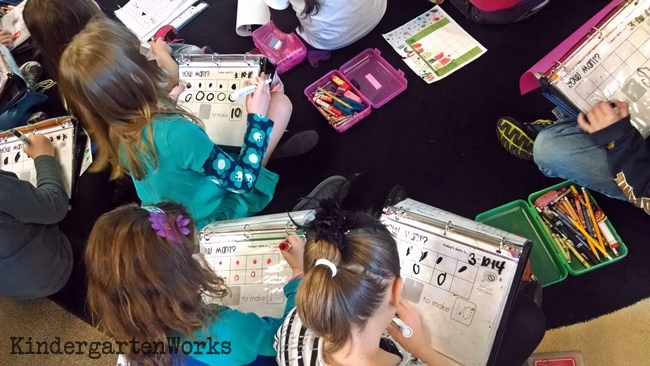
But every day we do wrap-up with a weather graph activity and select our line leader for the day. We dissect their name to look for “little bits we know” in that person’s name – like sight words, digraphs or common blends.
Then we head off to our first literacy center.
Literacy center #1 and guided reading
Students get busy at their literacy centers and I prep quickly for my first reading group – reminding myself of what the first lesson is gonna look like, set out our guided reading mats and grab my materials close by.
Currently, I have 5 reading groups, plus 2 completely independent workshop readers… so I have to rotate when I meet with each of them.
I see some groups 4-5 times a week, some groups only 2-3 times a week.
I call student names in a group to come meet me at my guided reading table.
Usually, we do a warm-up activity or two, a main activity and then we close it out.
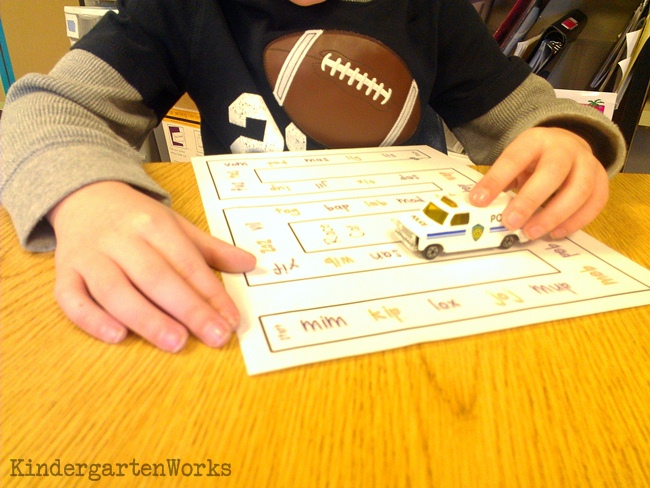
All the rest of my kinders are working at their first literacy center until they hear the cleanup song coming from the computer.
Their centers are open-ended so they can just keep on working until they are signaled to clean up.
This really helps me have the flexibility to work with groups and give them the attention needed on any given day.
Read-aloud
We pull together on the carpet and I let a few share their learning and thinking since not everyone gets to see what others are doing.
We begin a story discussion and read aloud.
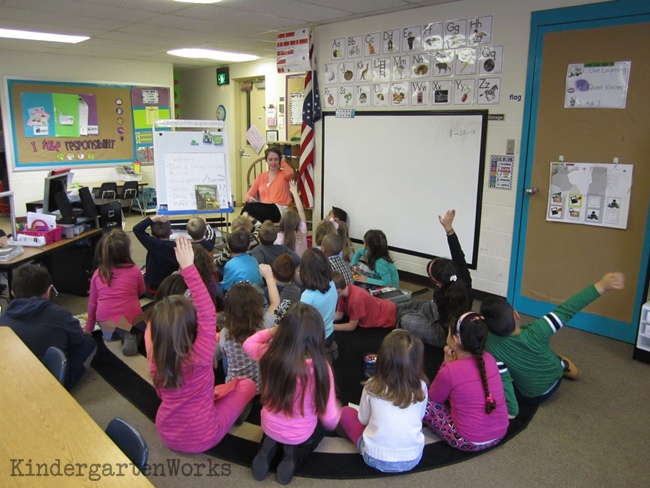
I’m big into using classics, different versions and well-loved authors to teach students how to think/engage when reading… so we talk and read and talk and read… I mention how they can practice the skill in their centers.
For example, as I write this post, we are enjoying comparing and contrasting different versions of Henny Penny this week. We also compare the story structure to other stories we’ve read and talk about the illustration style of Paul Galdone.
Last week we dissected The Little Red Hen and for two weeks prior to that, we dug into non-fiction books and magazines on penguins.
Literacy center #2 and guided reading
It’s time for our second literacy center for the day and I pull another group of students. We work on the skills they need… sound familiar?
I’m not great at following a clock. {Really…}
But I am great at following a routine!
So, I use my strengths and use routine to help keep track of our day.
Students who aren’t pulled by me continue working in their heterogeneous groups on their reading, writing and word work skills.
We have our specials scheduled at different times each day, so when my cell phone alarm reminds us to line up for a special, we figuratively just “push pause” on whatever we’re doing and resume when we return.
Sometimes I laugh at the amount of sheer “stuff” all over the place, but learning to read can take a lot of “stuff.” And it all gets cleaned up in 20-30 minutes again anyways.
My kinders all grab their notebooks and their pencil boxes to bring to the floor.
We pull together again as a group.
Word work
A couple of students share what they did at centers or I edify things I want to see others do, how I want a few to challenge themselves, or I take a moment to re-teach something mechanical to keep centers running smoothly.
We use this whole group time for phonics and word work to practice reading skills.
Warm-up charts
We start with a warm-up.
Sometimes they get to be the teacher…
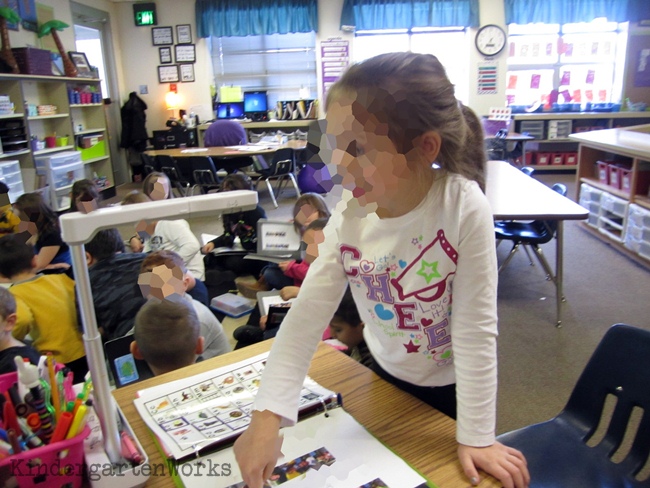
But most often they are following along in their notebooks and I am doing my best to keep everyone engaged.
With students at all levels, giving them materials in front of them has been helpful to me in pulling them together.
We use an alphabet chart, name chant, bits chart, two sight word charts, and a vowel patterns chart as we grow through the year. Normally we are doing 1-2 charts each day. Those are the same charts they will see again in their guided reading groups too, depending upon their skills.
Poem of the week
We also use this word work time often to work through a nursery rhyme to build reading fluency and do more phonics or word work.
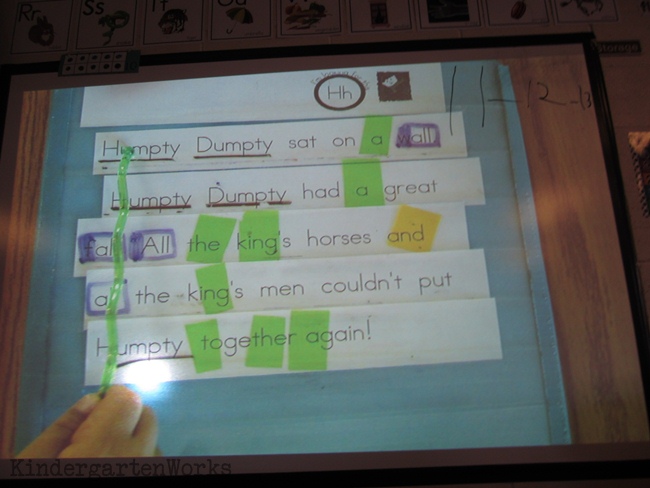
You can see above we were talking about using repeated words, sight words and bits we know to help us improve our accuracy.
We dismiss from the whole group space with a reminder to try using such strategies at centers and head to our third literacy center.
Literacy center #3 and guided reading
I pull a group, the rest all continue working… see the pattern?
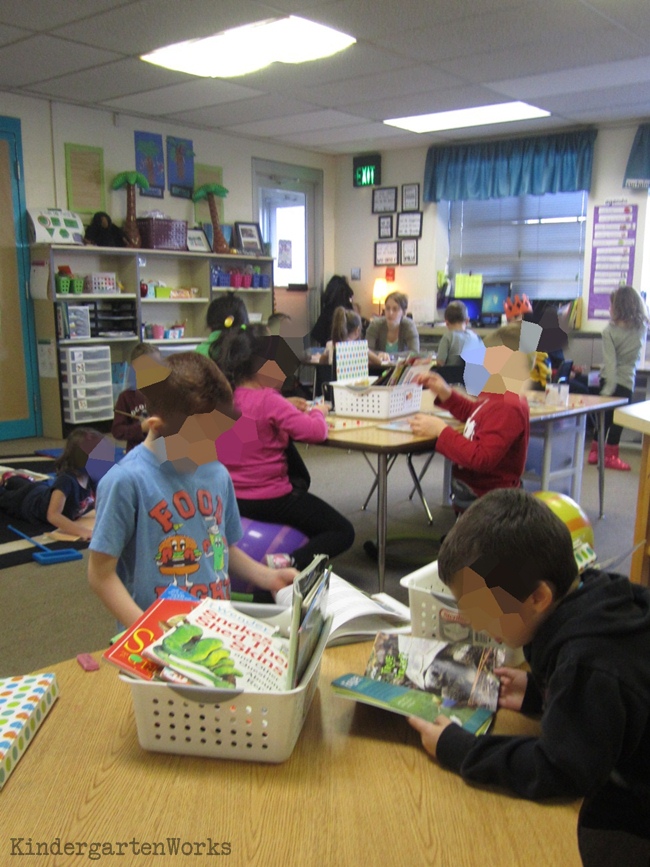
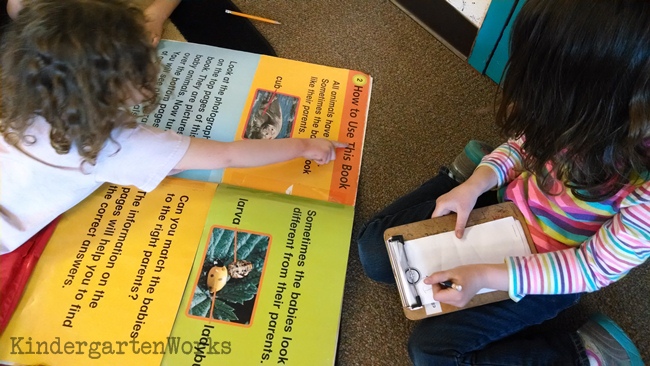
And a huge chunk of our day is complete!
Writing
We move into ‘writing together’ on most days, where we are doing shared writing, a mini-lesson or interactive writing (earlier on in the year)… and some days we just start writing in our own books.
We call it author writing.
They pick the content. They write and draw.
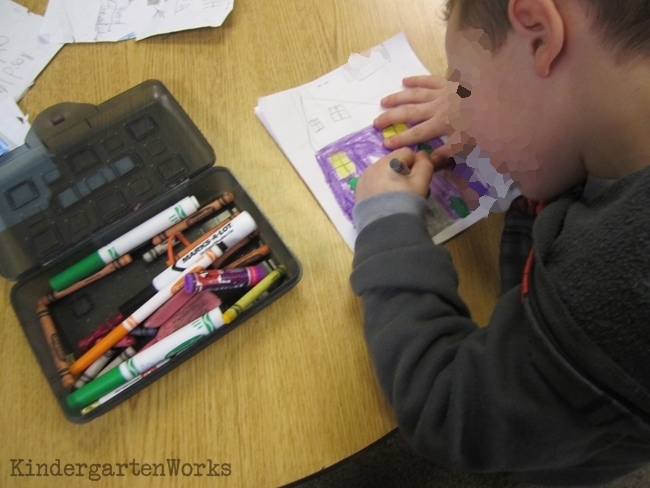
I’m moving around the room talking with students about their books, helping them find ways to make their books match what’s envisioned in their heads and looking for one-on-one opportunities to teach in the moment.
Lunch and recess
We break for lunch and recess. I take a few minutes to have an adult conversation with my favorite teacher down the hall.
After lunch
Most often, we work more on writing once we return from recess since I’m not great at sticking to a time schedule.
Sometimes we gather to let a couple of students share their stories. Some days, if we’re behind, we simply clean up and move on.
Pack up and choice time
Now, in most years I’d save packing up until the end of the day. But this year we had to try something different. I’ll explain more below.
We move onto getting our folders ready and backpacks packed up using our end of day procedures.
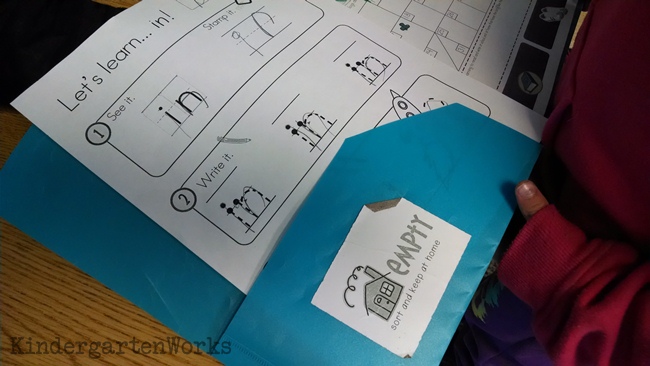
If a student successfully follows through with the steps and the alarm for math hasn’t gone off on my cell phone yet then they have a few precious moments to have choice time.
What is choice time? I stash a set of 4-5 choice activities behind the folder icon on our agenda that are like a surprise each day. They can choose from things like Legos, blocks, house, games, dress-up, and the rest of the goodies I have stashed away.
I like to use earning choice time as a whole-class-incentive to keep our transitions quick throughout the day (to earn more time to play) and to help students follow the multi-step end of day procedures efficiently.
Guided math
We move into guided math. This year my favorite teacher down the hall and I switch a handful of students to better differentiate our groups.
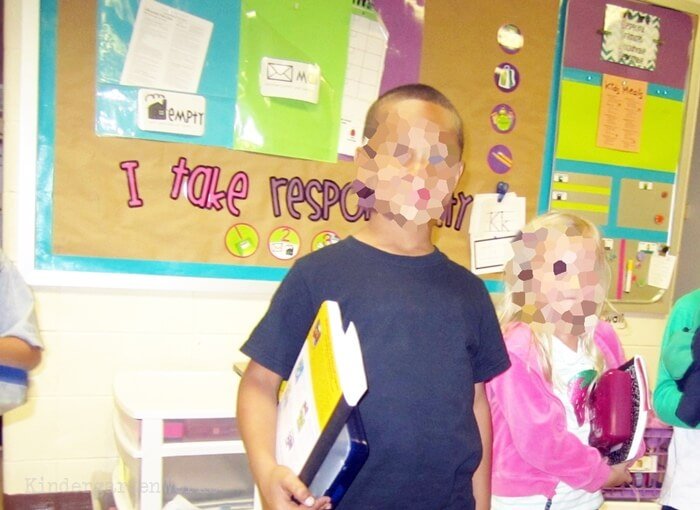
Last year, I taught math in the morning and loved it. But this year, afternoons works out the best since we both have the same large, uninterrupted chunks of time here.
Guided math happens four days a week. On our off day, we do a guided drawing and writing project or a more-involved art project to connect to science or our read aloud.
Daily introduction
Students line up to switch or if they’re staying they wait on the carpet. Sometimes I play a quick youtube math video to make the transition waiting time go more smoothly.
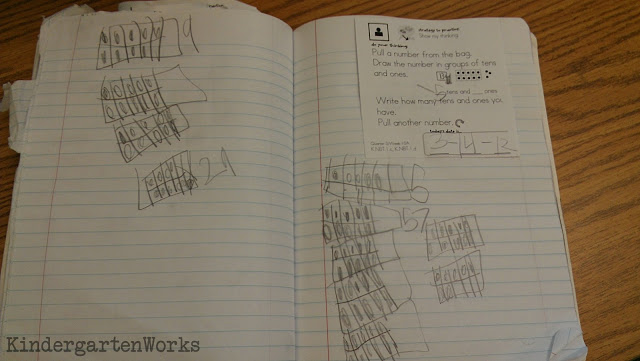
I explain our math prompt, highlight great examples of work, go over a practice zone game or review a skill once our newly combined group is ready.
Math zone #1 and guided math
Students go to their first math zone and I meet with a group of students at the teacher zone.
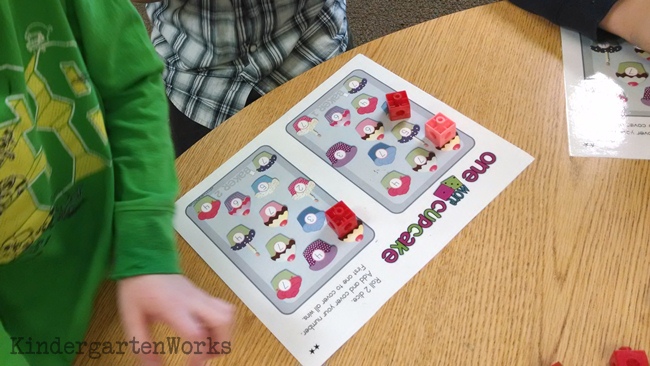
Math zone #2 and guided math
We turn on the cleanup song and switch (without meeting whole group which is different from our literacy centers) to our second zone.
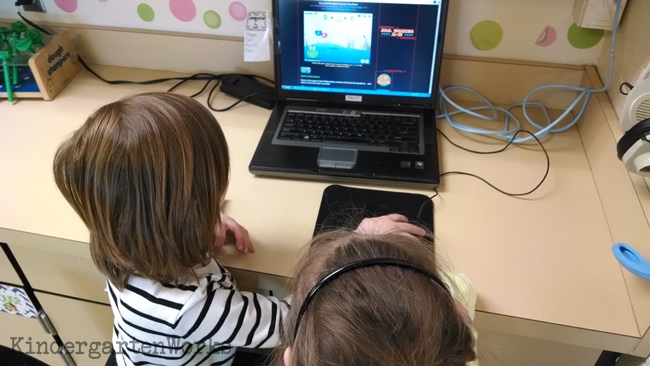
Wrap-up
Then we pull together during the last moments of our day to share a couple of work examples or student learning stories.
I will also often grade math journals during this time as I listen with one ear.
Students return to their rightful classroom (if they switched) and we grab our belongings that we had packed up ahead of time to go home.
Line up to go home
I wish students a good afternoon by reminding them that…
They are loved.
They are special.
And they are made for more.
The lights go off. I follow them out and after all students are picked up (we have no busses), I return to my classroom.
Prep and planning time
I often find that my lights stay off while I pick up large debris off the floor, stack items to-do on my teacher table and review my to-do list.
I add to it, cross things off, see what I did or didn’t do during my prep period and what is a must before tomorrow comes.
I spend time printing, reflecting, emailing and looking to the day (and days) ahead ensuring that what we’ve got planned doesn’t need a major adjustment.

I try to make my teacher space as neat and as minimalistic as I can – just to make the next day start out on a calm note for myself.
Frequently asked questions
Wait a minute… Where is the science and social studies?
I use our reading discussions to hit select but solid-good, non-fiction themes throughout the year that help get it all in.
Where is the arts and crafts of it all {this is kindergarten Leslie!}?
Well, I’m not super big on crafts… but we incorporate guided drawing and/or art into a more involved project once a week. We do this on the day that we do not have guided math scheduled.
Can you give an example of integrated learning?
Sure. Let’s use an example. Remember I mentioned we were learning about penguins…
Well, we:
- made time to read about them during our read alouds
- wrote about them during our whole group writing-introduction time as an interactive writing activity
- checked on a zoo’s live streaming cam to observe them during a transition time
- made a kinder-gorgeous hallway display with our learning using both artwork and writing during our guided drawing project time
We just make it work by building it into our weekly routine.
How long is your ____ time?
Well, here is a look at our weekly schedule at a glance. This sample kindergarten daily schedule will help you see the routine and flow.
It may be in a bit different order than what you see listed in this post just because I would change things from year to year.
Let’s wrap it up
Phew! That turned out to be crazy long with all of the photos. Thanks for sticking in there with me.
Perhaps we should grab a cup of tea and check out your day next?! Any takers? Maybe after a nap…
If you like what I do here on KindergartenWorks, then be sure to subscribe today. I look forward to sharing ideas with you weekly.

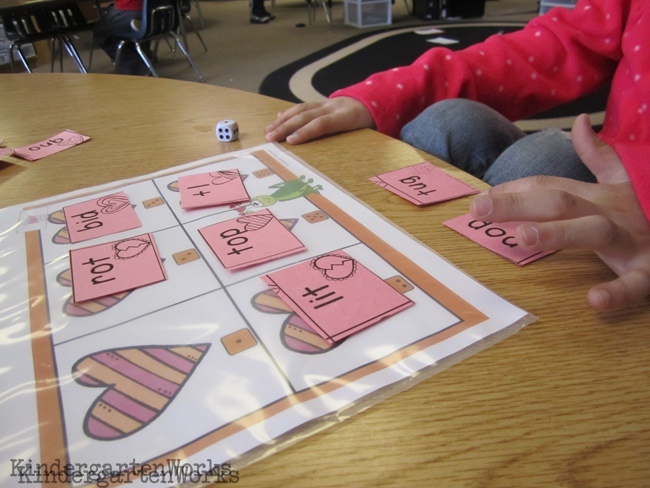
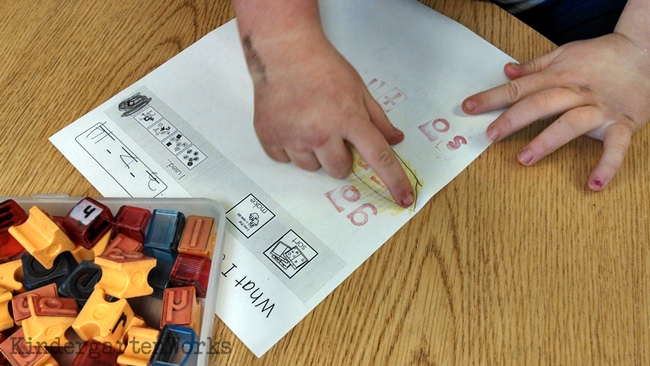
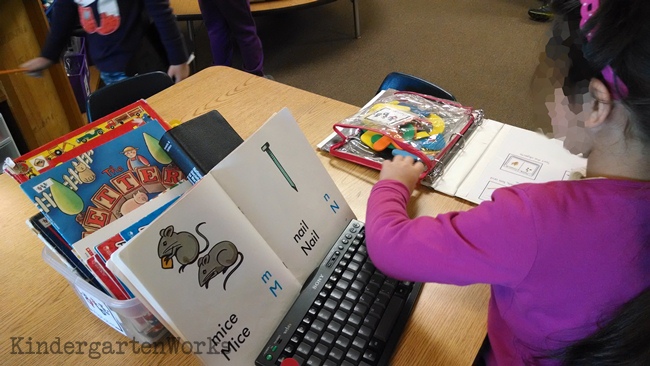
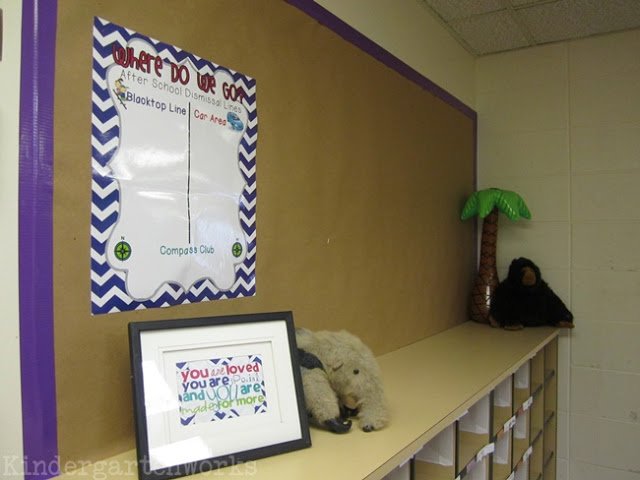
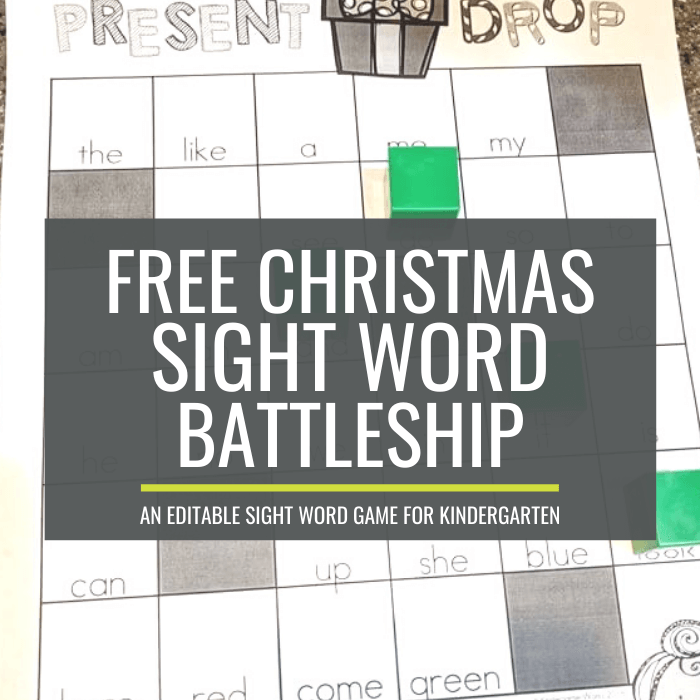
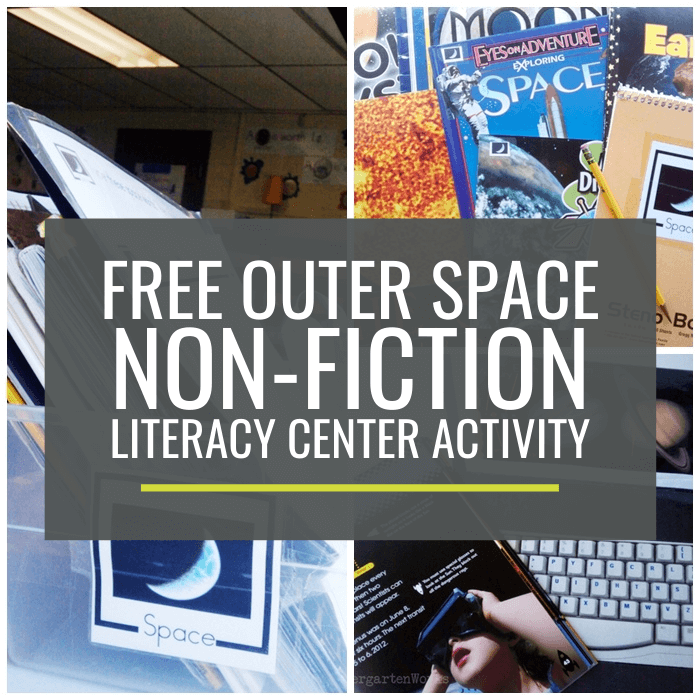
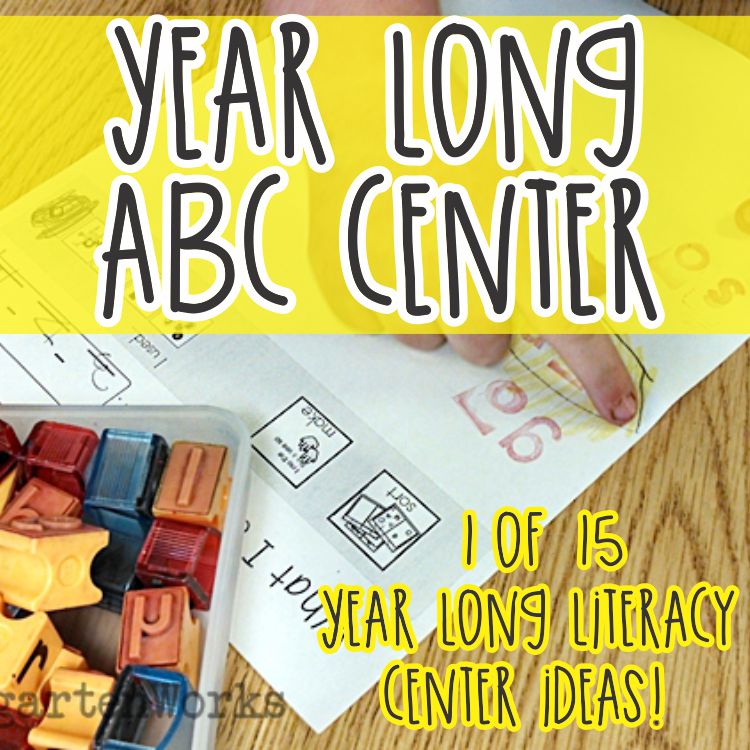
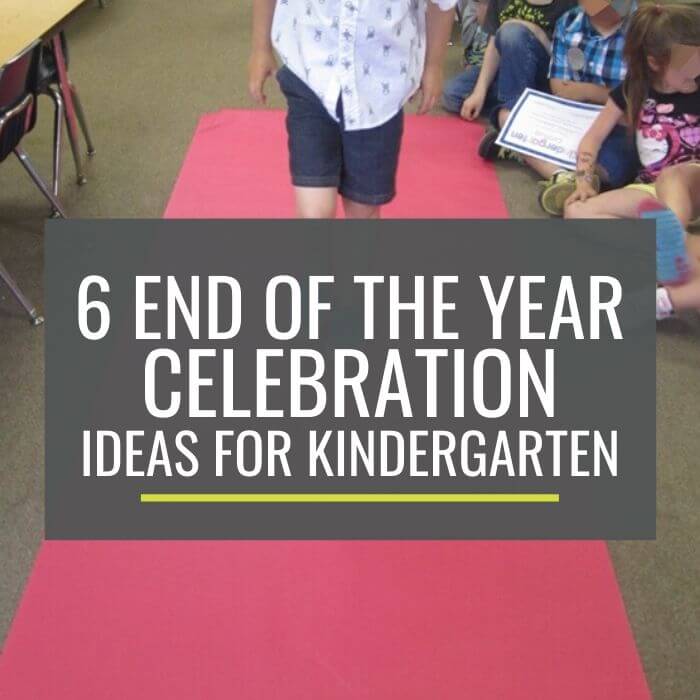
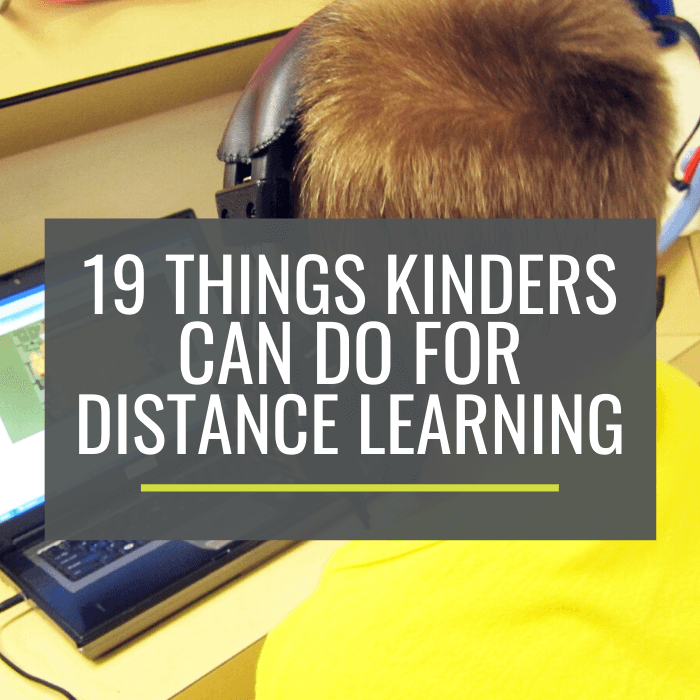
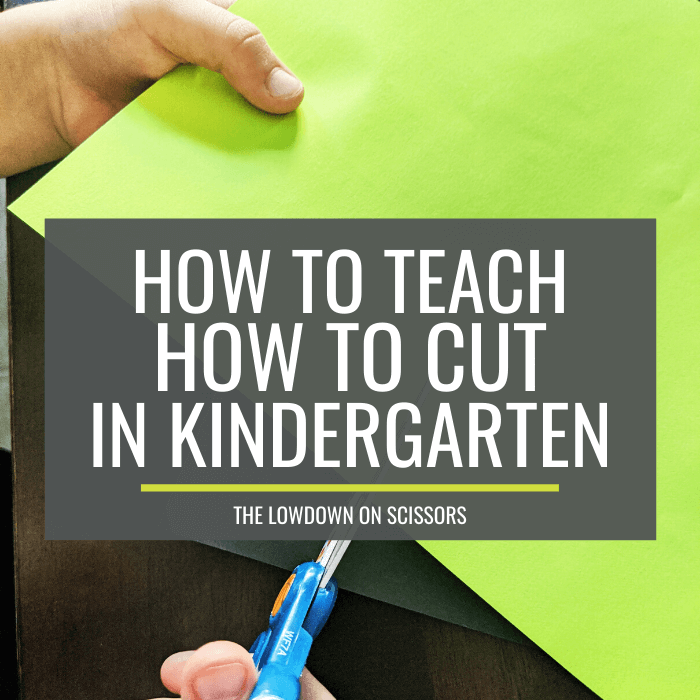
Hi- I just love your blog and all your ideas! This is my second year teaching kindergarten and my 17th year teaching. I have large amount of my teaching experience in Early childhood special education,so your alternative seating is very exciting to me! I am just going to jump into the deep end and do it this year when school starts-here is my first question…
My room is not that big and we have the awkward large sized desks- yes I said desks that take up a lot of space. I did manage to salvage a couple of tables. QUESTION do you think I need to have a desk for every student at the beginning of the year? If I put out tables(take off legs for sitting areas and make some desks really high for standing ect then there is not enough space for 24 desks. Also WHERE DO THEY KEEP THERE THINGS? like math journals/writing journals reading ect? I did get seat back covers for them to keep their things in-but they were to small I was going to re order,but if I do this type of seating not everyone will have chairs……
Also I read that you do housekeeping,blocks ect during a short play time-after they get their things together. My problem would be again space-where do I store housekeeping and blocks ect if I am only using them for a short part of the day? I usually used them as a center during literacy centers-but I did find that no one really wanted to work with me in small groups or with others who came into co-teach(ESL,reading ect) BUT I don’t want to give up the play based aspect of kindergarten either-so I am stuck.
I so agree with ALL of your posts and would like to adjust my classroom to incorporate a lot of your ideas. so your help would be greatly appreciated!
Hi Jodie,
Thanks for your kind compliments! The desk for every student is really up to you. It depends on your comfort level with not having that and yes, finding alternative solutions for storing student stuff. If you’re ready to jump in right at the beginning of the school year and you don’t want to have a desk for everyone later in the year, I’d say that you should also start out that way.
Here’s my post on starting out the school year with different work spaces for students. You can use this with sitting, standing and kneeling spaces – or at least we did – with no problems. I loved the space it freed up.
If space is at a premium, then you’ll have to decide where/how you want to use your house/blocks. We had ours tucked away in cupboards, but my room honestly wasn’t lacking for storage. Here’s something I wrote on that topic:.
Where they keep their stuff? One year I did book boxes. The final system I landed on – I kept all of their math journals together (rather than spread out across the room) and had them keep their calendar binders, pencil boxes and their writing folders in drawers I stuck under the ends of some tables. You can see a pic of one in the bottom picture (with the purple ball chair) in this post.
Here’s everything I have on alternative seating. I hope it can help! (And this fb thread has more photos of my room in the comments.
Great post! I was wondering if you could go into a little more detail (or link to posts) about your literacy center activities. I am always looking for additional, quality, open-ended activities for my daily five time.
Hi Gina,
Thanks for asking. There are quite a few posts here already about our open-ended literacy centers. If you use the search function or use the “teaching” tab in the top menu, you’ll find literacy centers listed as a main category to read more from. Best wishes as you read for more ideas!
– Leslie
Thank you so much for responding. With a little digging, I was able to find more information. Thank you for sharing and inspiring others (myself included)!
You’re welcome!
I take it you have freedom to “teach.” I have to follow a precise curriculum frameworks down to the minute. Very little flexibility. Art projects are not allowed anymore. I miss that part!. I miss the creativity. My day is 8 a.m. to 3 p.m. daily with specials scheduled every day for 45 minutes.
That is so sad to hear Lucy because we all know that isn’t what is best for your kids who are all different levels. Thanks for sharing from your day!
– Leslie
I wish I was down the hall from you! It would be so cool to teach with another teacher that inspires you and you work together as if you were team teachers in the same room.
Aww. hey thanks Jennie! There is power in working together – that’s for sure.
– Leslie
This is VERY insightful! I am super interested in doing guided math and guided reading in my classroom. I can’t wait until I have time to dive into your blog and get lots of tips! 🙂
Thanks Emily! Best wishes on your new adventures in Teaching 🙂
– Leslie
Just curious what time to what time are your children in class, and do you have any specials? (art, music, gym, library etc) Thanks for the photo essay nice to see how you do your daily routine.
Hi Sue, We are in session from 9:40-3. My kinders do have specials at all random times. I mentioned above that we just pause whatever and pick up where we left off. Hope that helps give you more insight!
-Leslie
Got it, must missed it when I read above. Our K5 class goes from 8:15 until 3:20, so a bit longer day than yours and they too have specials throughout their week. I teach K4 and have 2 classes for 2 1/2 hours a day with no specials. I always find it interesting to see how K classrooms schedule their day, so many changes over the last 25 years that I have been teaching. Thanks again for the glimpse into your day.
Wow Sue you do have a bit longer day. I like hearing from others too. Thanks for sharing details about yours!
-Leslie